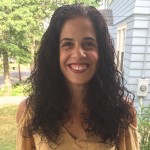At Congregation Shomrei Emunah, we value helping others and trying to make our communities better. I helped organize Shabbat Across Shomrei for the last three years. For this event, congregants sign up to participate for a shabbat dinner as either a host or guest. This requires people to open their homes to congregants they don’t know.
It is my job to match guests with hosts. The basic criteria I use to make the match is accessibility into the home for anyone who is handicapped (usually the elderly), level of kosher, time of dinner and food allergies. This form is filled out online by the participants, with a comment box for additional information I should consider. It’s in the comments section, where most people write me a private note that they want to eat with people of similar age to them or their children. Inevitably, I try my best to match people of similar age together, but the numbers of people and available chairs don’t always work out. This means that there are adults and elderly matched with those who have young children. The hosts open their homes to the congregation and welcome those with whom they’ve been matched. Sometimes there’s an initial anxiety about hosting someone older if we have younger children in the home. The older generation worries that they may get stuck eating with loud children who are misbehaved. The younger hosts worry about getting stuck with a cranky old person whose company they won’t enjoy. But more often than not, this anxiety fades and we come through for each other in ways that we normally would not.
It’s a wonderful experience to sit at a multigenerational shabbat dinner table. The variety of stories and perspectives shared about our Jewish experience is profound. The children speak about their pre school experience and/or JLC learnings. The parents often share their success and challenges of raising their Jewish children in our modern day society. The older generation will reflect on their past parenting experiences and the results it had on their adult children. It’s insightful to see how their choices affected their adult children. The older generation will also talk about their travel experiences that enriched their Jewish lives. We all enjoy the storytelling and learn from each other’s perspectives. The richness of this experience comes from the aspect that we are from different generations and have varied stories that we can all learn from.
I have a soft spot for the elderly. I was very close to both my grandmothers. I saw how their age and declining health scared them. My husband and I also invited our aging father-in-law to live with us. He lived with us for 9 years before passing away. Sometimes he was very cranky and rude to us. Being my confrontational self, I’d bring it to his attention. He almost always apologized and explained that due to a change with his medication or his medical health he was experiencing anxiety and/or depression which affected his outward social interactions. He often told me how poorly he got treated at a store or office because he was hard of hearing and needed something explained to him a few times. When the cashier or office secretary was rude to him, it embarrassed him and put him in a bad mood for the rest of the day because it was a reminder of how vulnerable he was becoming.
In our modern day society, we know that respecting the elderly is important. We have become discreet about our ageism. We have become savvy enough to not show it outwardly towards the elderly. We set up our communities to serve them as best as we can. We check on them, visit with them and advocate for their basic rights. We know to open doors for them and be patient when need be. But socially, we sideline them more often than not. The young people and middle-aged folks sometimes speak is disparaging ways amongst themselves, especially if we have had a negative interaction with them, or if they have disrupted our routine in some way.
With more people living longer and having access to good medical care, we are seeing more active elderly people than ever before. Also, our communities are doing a better job providing access to the elderly to ensure their participation in community events. However, ageism is something I am seeing more often in my daily life. And I see it at our synagogue. During kiddush lunch, we don’t value our children sitting with the elderly to chat. Instead, we self designate that certain tables are for “them” and “us”. In turn, the older generation also does this reverse ageism by declaring that they don’t want to eat with noisy children who are unpredictable. We prefer our separation because we value our personal comfort more and we don’t want to extend ourselves to the needs of others during a time we prefer to eat and socialize.
But I wonder what our children and elderly are learning by constantly avoiding each other week to week. My son, who is 7 years old attends JLC on Saturday mornings. He loves kiddush lunch because he gets to choose his own foods, pick his own table and chat with all kinds of people. But as he gets older, he wants to sit with his friends. He takes less time than before to shake the hands of the older generation and say, “Shabbat Shalom”. He wizzes by someone with a cane without noticing them and how his running can make them feel vulnerable. I think we would consider this lack of self reflection normal for someone his age. Except for the fact that norms are created by our culture. And if our culture valued the older generation, me might expect more from our children towards them.
I can’t tell all of society to reflect on their ageism. But I can ask my child to do it. And I can ask my congregation to take a moment and consider their own role with ageism. We are reminded of our connection with the elderly in Deuteronomy 32:7 when it says, “Remember the days long gone by. Ponder the years of each generation. Ask your father and let him tell you; and your elder, who will explain it.” In my opinion, this suggests that our interaction with older people in our families and community can bring forth a deeper understanding of ourselves, which can be deeply enriching to our lives.
When my son grows up, I want him to feel lucky to eat with someone from an older generation who can advise him on his concerns and trepidations. I also want him to shine his forgiving smile at any cranky old person because he should be empathetic to their struggles. Sometimes I fear that during synagogue events we devalue ourselves by self selecting to interact with those of similar age too often. During Shabbat Across Shomrei, many hosts are initially challenged by hosting a dinner for the various age groups. But soon they report that the dinner was most pleasurable because of the mixed ages. To be a strong community, we need to feel connected. And that takes the work of recognizing our inner ageism and our craving for the similar. We need be willing to push past that to access the gift that is presented to us weekly and at most events at our synagogue – our diversified generational spirit.
Thank you to this year’s participants!
Shabbat Across Shomrei is a beautiful time when our congregants open their homes to various guests for a delightful shabbat dinner. The hosts are matched with guests based on location, access into the home and level of keeping kosher. This requires our hosts to be flexible and open minded to having a variety of dinner guests, some whom they know very well and others they are getting to know better. The generosity, flexibility and kindness it takes to be a host for this event, is what makes Shabbat Across Shomrei a special event that fosters our community. We hope every congregant gets to experience the beauty of this evening as either a host or guest next year. A big thank you to the this year’s hosts who collectively seated 31 guests in total at their respective homes:
Sharon Hurwich
Adrienne and John Lasiter
Gail and Ian Stocks
Jennifer and Josh Hirsch
Zelda and Rabbi David Greeenstein
- Lets Talk About Noa Tishby’s Book: Israel – A Simple Guide to the Most Misunderstood Country on Earth - Tue, Apr 16, 2024
- Shabbat – Our Way In Verona - Thu, Jan 11, 2024
- A Letter To My Son - Wed, Dec 14, 2022



Naz, This is beautiful and so true . Thank you for taking the time to write such a thoughtful article.
I share your experience with beloved grandparents and still relish the talks I had with my grandmother.
I hope people really read your words and take them to heart and maybe we can cross generations. Little kids are messy but so much fun. We older folks can be cranky but -hopefully- have achieved some wisdom that we might be able to share.. And weblike fun
Aileen Grossberg
I was very touched by your article and grateful that you articulated what you have perceived and experienced in our world and in our community. On so many levels, we each need to reflect on our interactions with others who do not mirror who we currently are. This benefits us, the people with whom we interact, and the example that we set for our children who will soon be at the forefront of making this a better world.
Naz, That was a very thoughtful and insightful letter. Interacting with the older generation can be difficult at times, particularly for younger children, but the rewards are there for both. Older people miss having young children in their lives and love to talk to them. They want to hear about today’s activities and then share stories about their youth. Small gatherings are best for this.
Keep up your good work.
Naz, thank you for the opportunity to perform this mitzvah. It was a wonderful chance for so many of us to step out of our comfort zone and open our homes and mind sets to new friends and new ideas. We felt privileged to host so many new members this year, while getting to know some familiar ones even better.
Thank you for managing Shabbat across Shomrei. It is one of the many volunteer jobs that no one ever saids thank you.
We need to find more opportunities for cross generational interactions. Sukkah building and MESH seem to bring us together.
However, it is truly up to individuals to cross the generation line, with understanding and tolerance